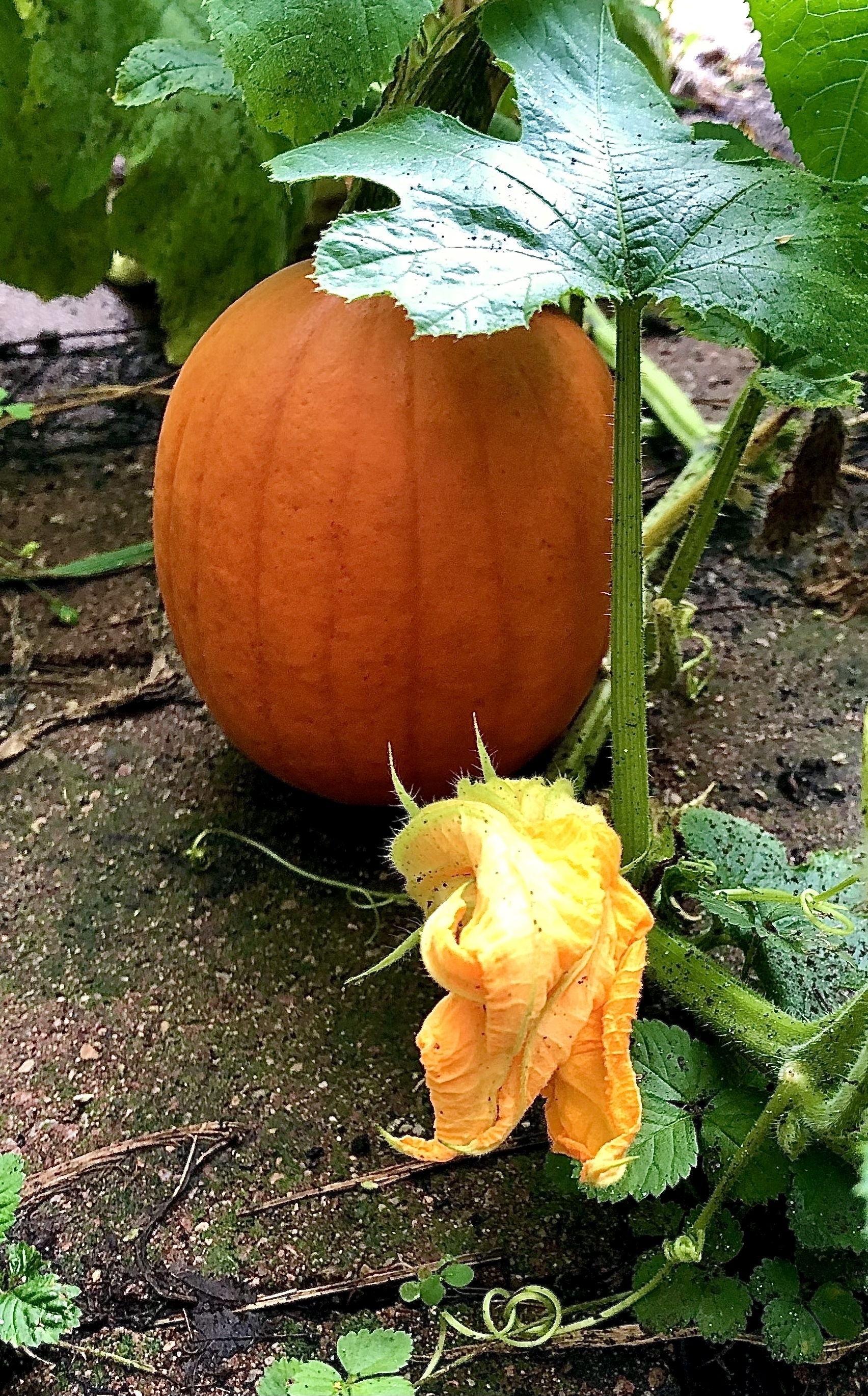10 August 2022
’Idál, 10 Kamál (Perfection), 179 B.E
Seen
Last fall we picked up some “decorative” field pumpkins (cucurbita pepo) during the fall season. Shortly after the new year began, they began to show their age and slowly soften. I threw them on top of a raised bed and by spring, they were gone. But some of their seeds found their way into the soil where they germinated. And now, this:

If they keep producing we won’t have to buy any this year!
Done
Participated in a Zoom call with several members of the Global Solidarity Accounting, Human Well-Being group, which covers three of the nine accounts in the overall framework: 4) Food, 5) Health and 6) Minimum Living Standard (Poverty). The conversation focused on food security for all. Since everyone has a vested interest in the output of the food system given they have to eat, it’s an easier topic to use to engage folks in telling their stories about food. Such activities reveal how people think about food systems and how they map the flows of food from “farm to fork,” so to speak. And that’s valuable information mainly because it quickly establishes how many hours of the day one consumes dealing with food — and that includes working to earn enough money to afford to buy it PLUS preparing the meals AND eating the meals AND cleaning up afterwards. All of it takes time.
Demographic data suggest we each have approximately 700,000 hours in our lifetimes (assuming we make it to age 79-80). If we get 8 hours sleep / day that makes the number of hours we’re awake about 466,000. If one burns through 4 hours / day (16 “awake” hours) dealing with food as described above, the number of awake hours remaining is down to 349,500. No wonder we opt for cheap, processed food, that we can easily store, quickly fix, and clean up later.
I believe a case can be made that a totally different system from the financially-driven one we currently have to one based on time as the currency would be better, healthier, and carry less negative consequences for everyone. At least, I’m going to invest a significant percentage of whatever time I have left to prove it one way or the other.
Noted
Astral Prospecting on Instagram and Astral Prospecting on Facebook
Marc Bosserman on Instagram Marc Bosserman on Facebook, and Marc Bosserman Music and Musings on YouTube
Quoted
In the morning the Master explained and illustrated some of the verses from Bahá’u’lláh for the friends who had come from the surrounding area to see Him. The explanations ended with the statement that contentment in poverty is better than happiness in wealth but happiness in poverty is more praiseworthy than mere contentment. Above all is the rich man who, having sacrificed, emerges pure from tests and trials and becomes the cause of tranquillity to mankind. Gratitude is the cause of multiple blessings but the apex of gratitude is sacrifice. The station of sacrifice is the highest of all. For this reason it is said, ‘You will never attain unto righteousness until ye sacrifice that which ye love.’ The Master then narrated a story:
At the time of his death a king longed for the station of a poor man, saying, ‘Would that I were a poor man so that I would neither have practiced oppression nor have had any regrets at the time of death.’ A poor man heard this, and said, ‘Praise be to God that at the hour of death kings desire to be poor. We poor people at the hour of death have no desire to be kings.’” 1
- ’Abdu’l-Bahá, and Mirza Mahmud-i-Zarqani. Mahmúd’s Diary: The Diary of Mírzá Mahmúd-i-Zarqání Chronicling ’Abdu’l-Bahá’s Journey to America. Edited by Shirley Macias. Translated by Mohi Sobhani. Oxford: George Ronald, 1998. https://bahai-library.com/zarqani_mahmuds_diary&chapter=6#section139 [return]